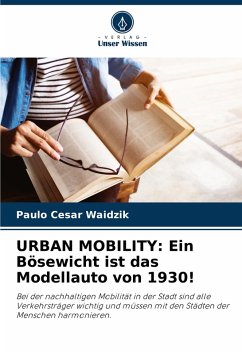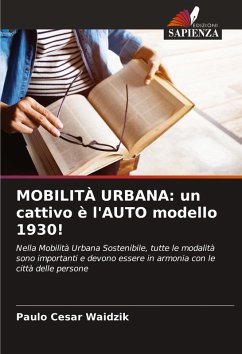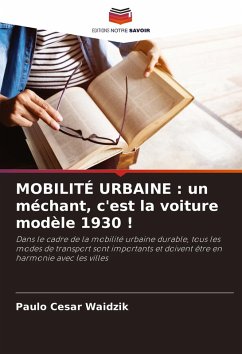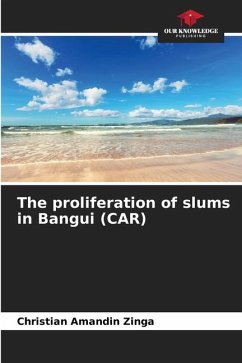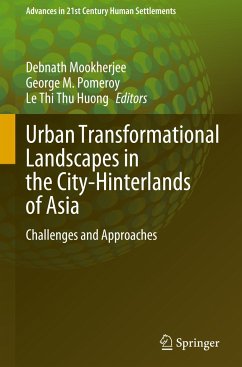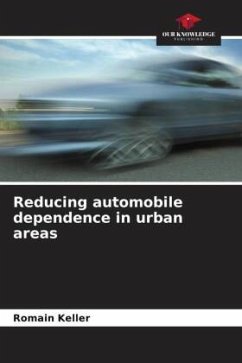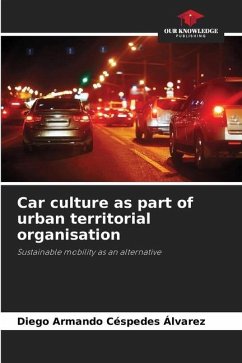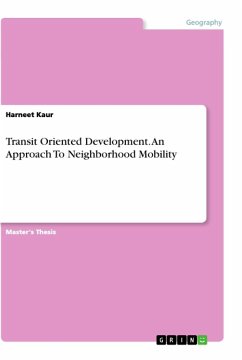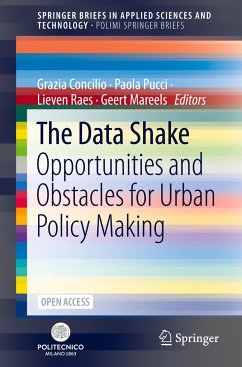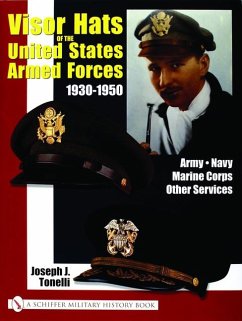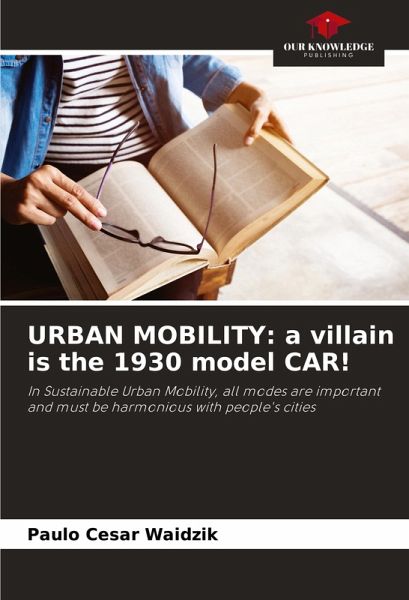
URBAN MOBILITY: a villain is the 1930 model CAR!
In Sustainable Urban Mobility, all modes are important and must be harmonious with people's cities
Versandkostenfrei!
Versandfertig in 6-10 Tagen
27,99 €
inkl. MwSt.

PAYBACK Punkte
14 °P sammeln!
The 21st century is mostly urban. It presents itself as the century of the urban planet and maximises the challenges of the car in Mobility. The abundant generation of wealth and technological resources has led to increased consumption and easier access to the opportunities of modernity. In conurbations, mobility becomes a challenge due to the high number of journeys, space restrictions and the resulting lack of efficiency and productivity. In this scenario, public policies on urban mobility, with the aim of guaranteeing fluidity, have determined the privileging of collective means of transpor...
The 21st century is mostly urban. It presents itself as the century of the urban planet and maximises the challenges of the car in Mobility. The abundant generation of wealth and technological resources has led to increased consumption and easier access to the opportunities of modernity. In conurbations, mobility becomes a challenge due to the high number of journeys, space restrictions and the resulting lack of efficiency and productivity. In this scenario, public policies on urban mobility, with the aim of guaranteeing fluidity, have determined the privileging of collective means of transport to the detriment of individual motorised modes of transport, among which the car is considered a villain. The car is an essential means of individual transport for urban mobility, but its current characteristics do not harmonise with the demands of the urban environment, and in this century it is no longer possible to use multifunctional mobility vehicles, and vehicles can no longer meet urban and extra-urban needs simultaneously. In cities, things must be tailored to the human being and for the harmony of human beings and the planet.





